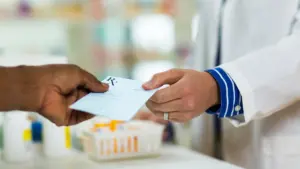National Recovery Month shines a light on the courage, resilience, and progress of people overcoming substance use and mental health challenges.
On September 1st, communities across the country come together to raise awareness, promote evidence-based treatment, and support recovery efforts that change lives.
By sharing stories, participating in events, and spreading hope, we all play a part in reducing stigma, inspiring others, and celebrating the strength it takes to heal.

What Is National Recovery Month and Why Does It Matter
National Recovery Month, launched in 1989, celebrates the nation’s strong recovery community and honors the dedication of service providers and local groups who make recovery possible in all its forms.
The Substance Abuse and Mental Health Services Administration (SAMHSA) utilizes Recovery Month to raise public awareness, highlight success stories of recovery, and announce new initiatives or funding opportunities. Over the years, these efforts have been supported through partnerships with public and private organizations, creating a united front in celebrating long-term recovery.
Much like we celebrate milestones for those managing physical conditions such as diabetes, hypertension, or heart disease, Recovery Month recognizes the progress of individuals who are reclaiming their lives from addiction and mental health challenges.
Reducing Stigma and Celebrating Recovery Success
Millions of Americans have changed their lives for the better through recovery. But often, these victories are quiet ones that most people never hear about. National Recovery Month provides an opportunity for everyone to highlight these successes and celebrate them openly.
Every September, thousands of prevention, treatment, and recovery programs across the country hold events to honor those in recovery. They share personal stories, talk about progress, and show their communities that recovery is real. By doing this, they help break down stigma, increase understanding, and inspire hope.
Recovery Month reinforces an important truth: behavioral health is essential to overall well-being, prevention works, treatment is effective, and people can and do recover.
Life is full of ups and downs, but with strength, support, and hope from the people around us, we can bounce back and thrive.
How to Participate This September (Events, Toolkits, Advocacy)
Below are practical ways you can get involved in National Recovery Month this September, whether online, in your community, or by using official resources.
1. Use Toolkits from SAMHSA and Partners
SAMHSA offers a toolkit packed with easy-to-use resources: social media posts, graphics, stickers, email signatures, and virtual backgrounds. You can download and even personalize these items to support the recovery message.
They also provide weekly themes (like health, home, purpose, community) and key messages to help guide your content each week of September.
2. Attend or Hold Events
Join events like webinars, local celebrations, or the National Recovery Month luncheon held each September in Washington, D.C.1
You can also create your events, including a virtual discussion, support group, or community gathering. Invite people in recovery, local health workers, or advocates to speak, and plan it around the toolkit’s weekly themes for added impact.
3. Share on Social Media
Post toolkit graphics, messages, or event info using hashtags like those from SAMHSA. The Centers for Disease Control and Prevention (CDC) also provides its own Partner Toolkit, which includes suggested social media messages and sample posts with hashtags like #RecoveryMonth, #RecoveryIsForEveryone, and #RecoveryIsPossible.
This is one of the strongest ways to spread awareness and reduce stigma, especially when you tag relevant organizations
4. Advocate in Your Community
Write to public officials to ask them to issue formal Recovery Month proclamations. These statements show local leaders are supporting recovery efforts.
You can also volunteer or support local groups, share your recovery story, or help organize events in your neighborhood or online to raise awareness.
Resources to Support Recovery
There are many resources available to help people on their recovery journey.
SAMHSA is a key government organization that provides information, guidance, and support for both mental health and substance use recovery.
Government agencies like the CDC and NIDA provide resources to educate the public, raise awareness, and reduce stigma.
People can access local and national counseling services, which provide professional help, therapy, and treatment programs.
Online support groups and educational materials are another way to get guidance and connect with others in recovery, even from home.
Organizations like South Coast Counseling provide tools, programs, and community support that make it easier for individuals to find help, share experiences, and stay connected.
By using these resources, anyone can learn more about recovery, access treatment, and be part of a supportive community.
National Addiction Professionals Day will be observed on September 20, 2024, during National Recovery Month. It honors the important work of addiction professionals, recognizing their daily efforts to help people on the path to recovery. The day was created by NAADAC to celebrate its dedication and impact.
Join the Movement
Recovery Month is about more than just observing; it’s about participating. Every action, big or small, helps reduce stigma, educate others, and show that recovery is real and possible.
South Coast Counseling offers real, caring help every day and especially during Recovery Month. Our work helps illuminate healing and hope.
By getting involved, you support recovery and help build a world where healing is possible and celebrated by all.

Source:
- Recovery Month Kickoff Luncheon – Faces & Voices of Recovery. (2025, August 12). Faces & Voices of Recovery. https://facesandvoicesofrecovery.org/programs/advocacy/recovery-month/recovery-month-kickoff-luncheon/







